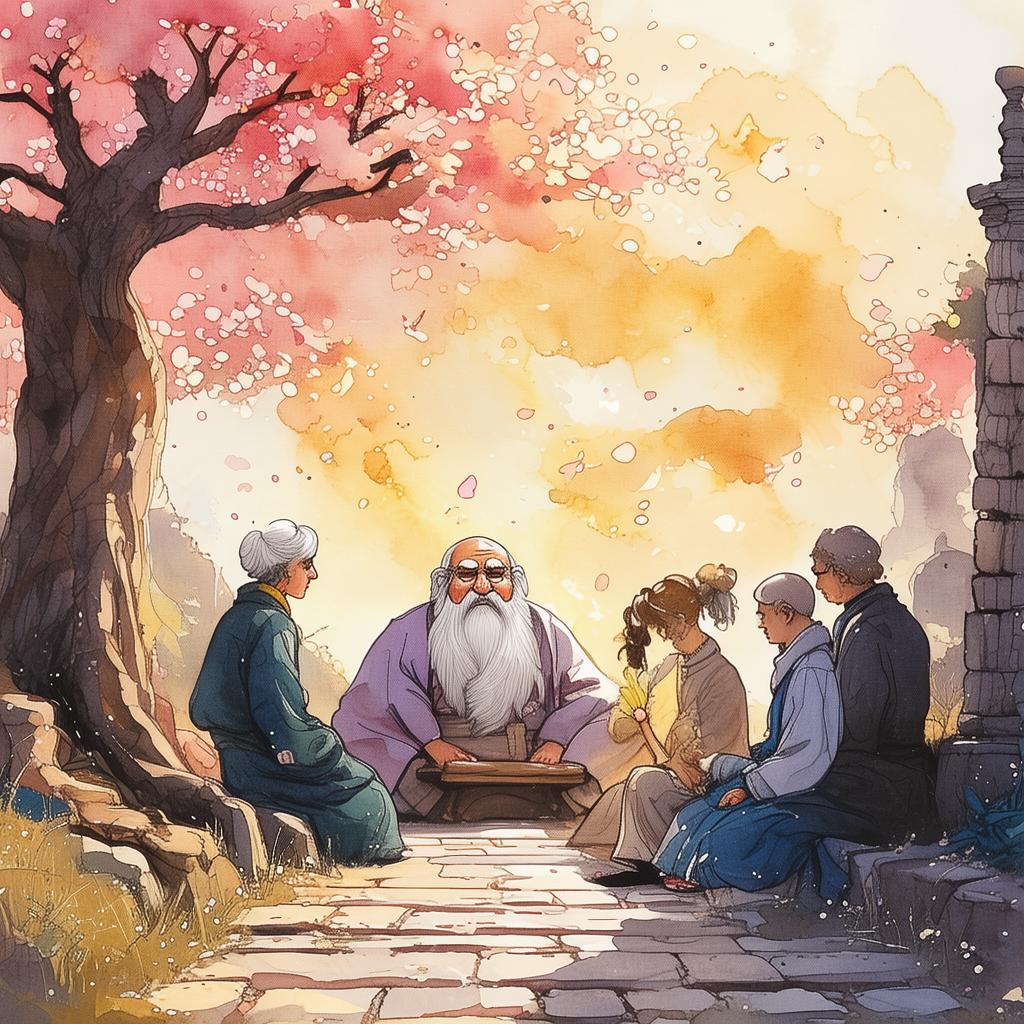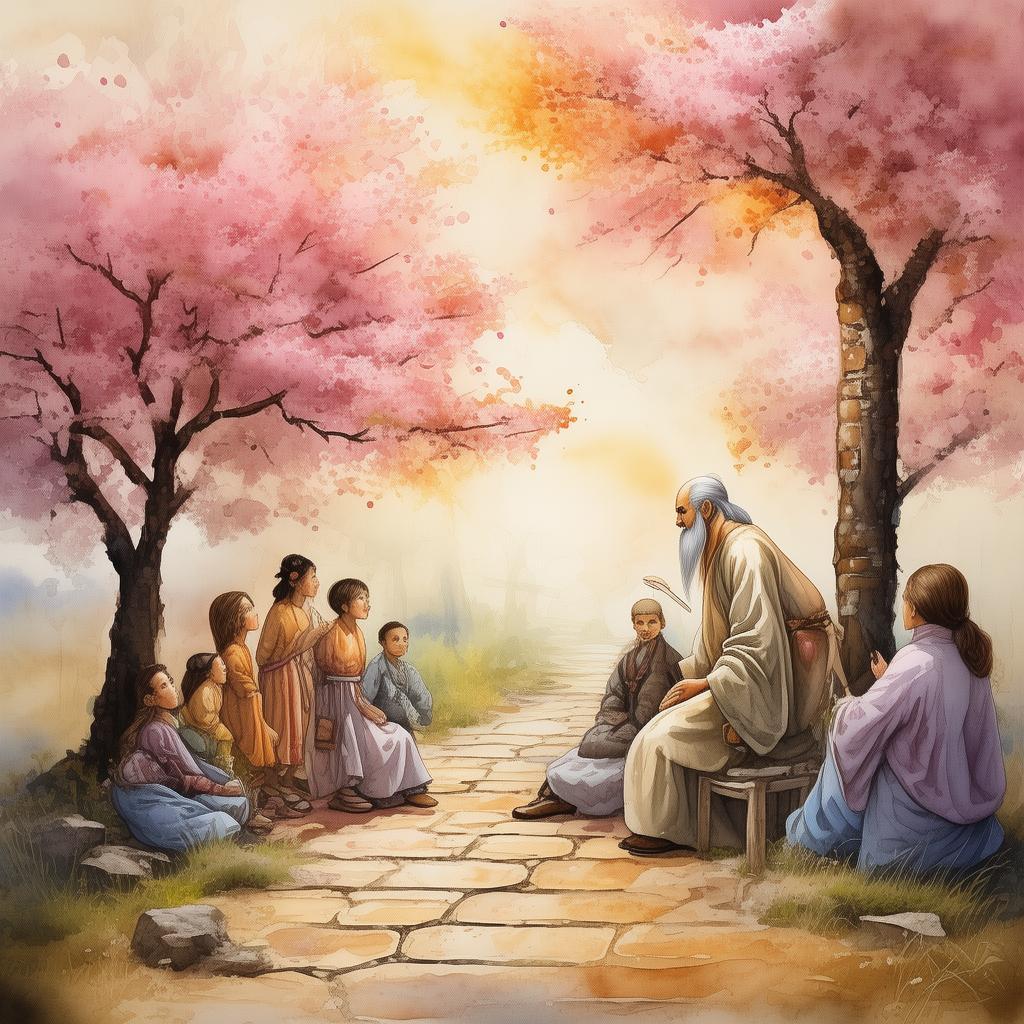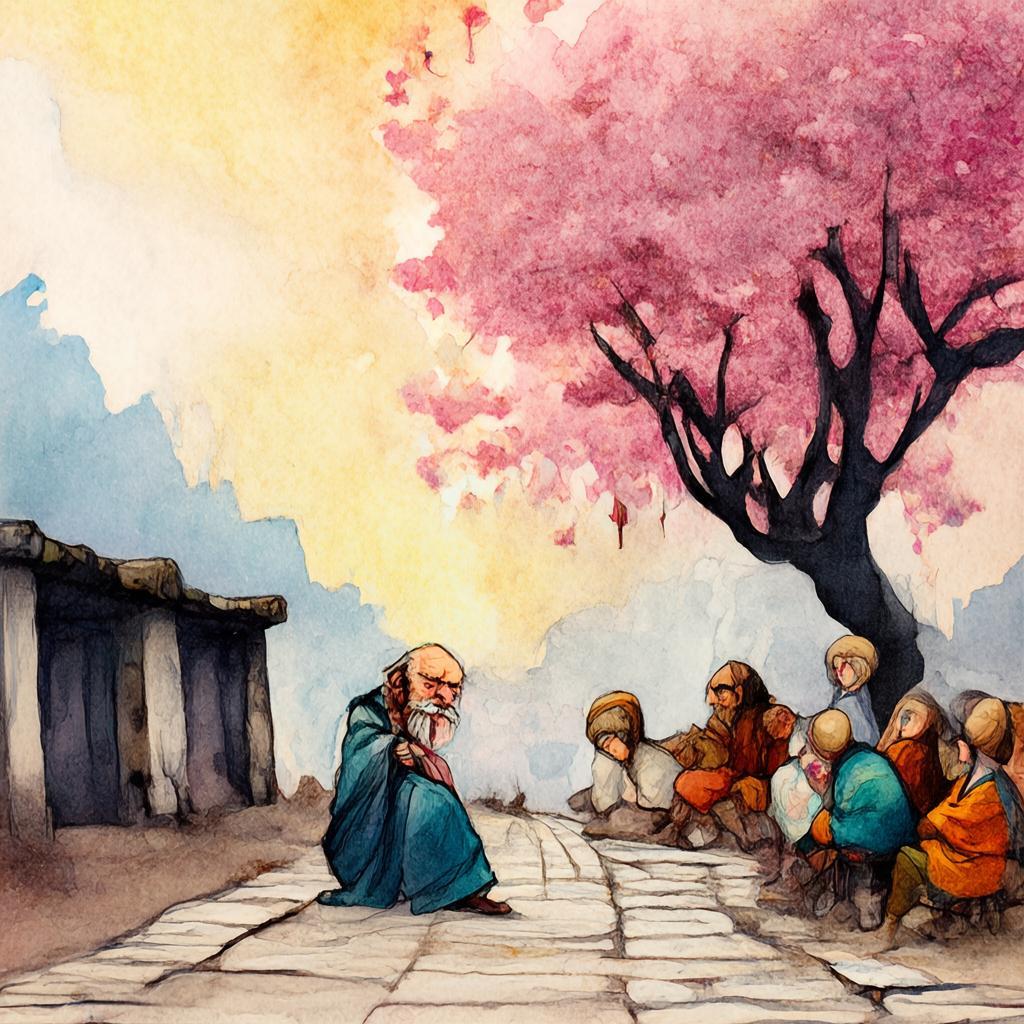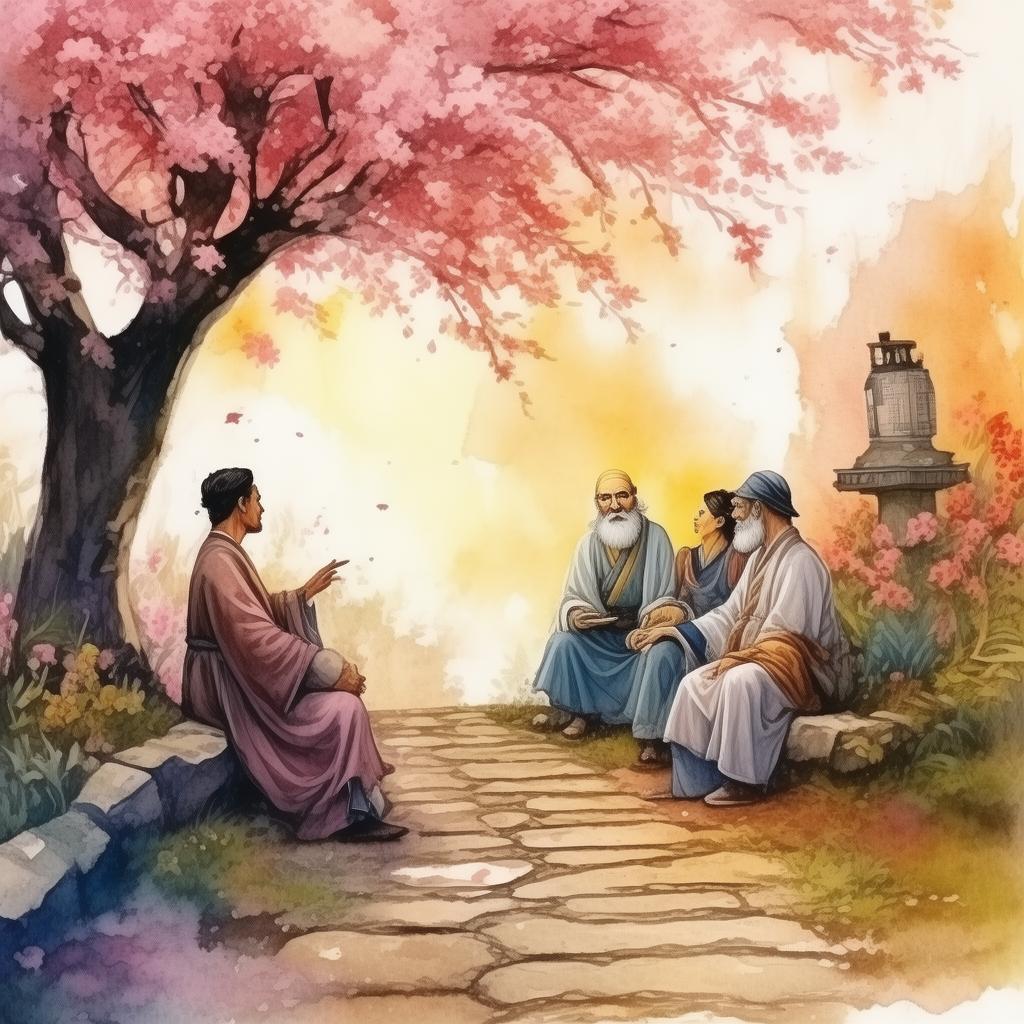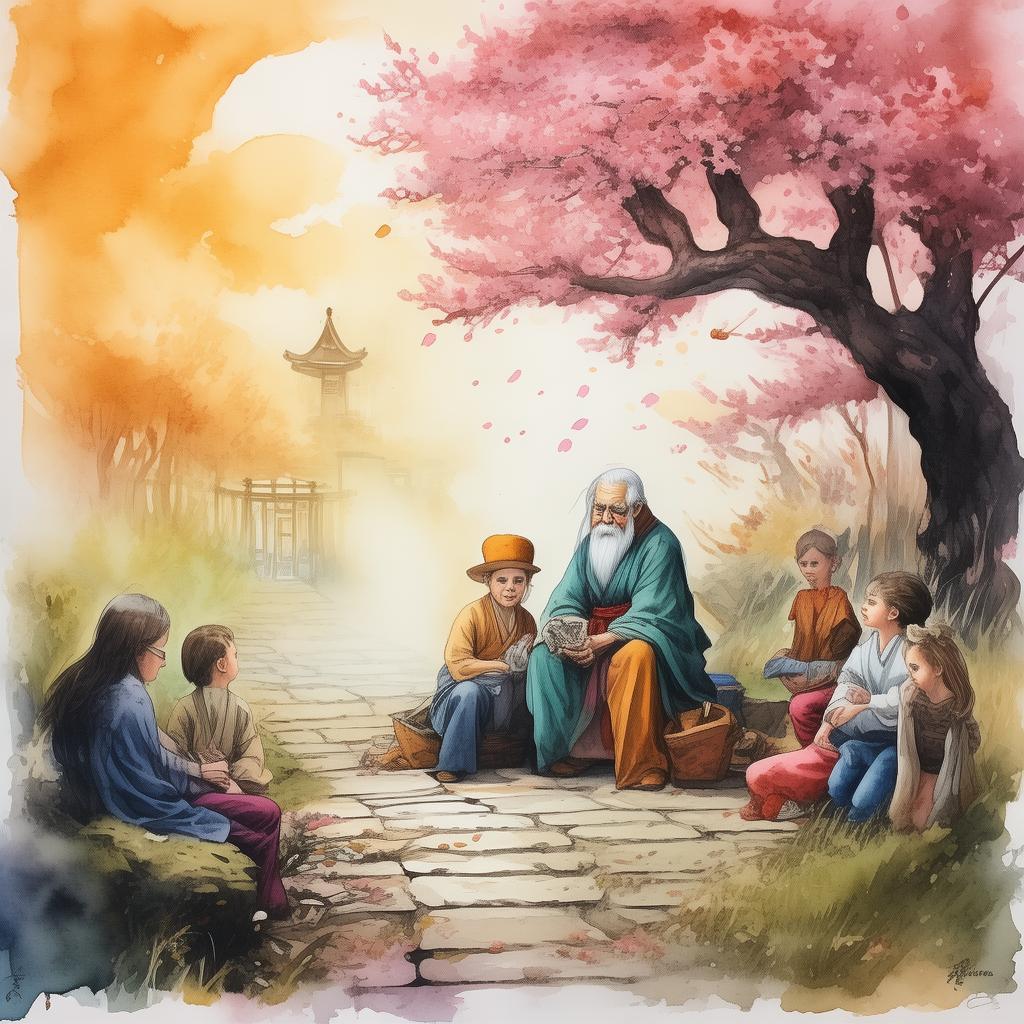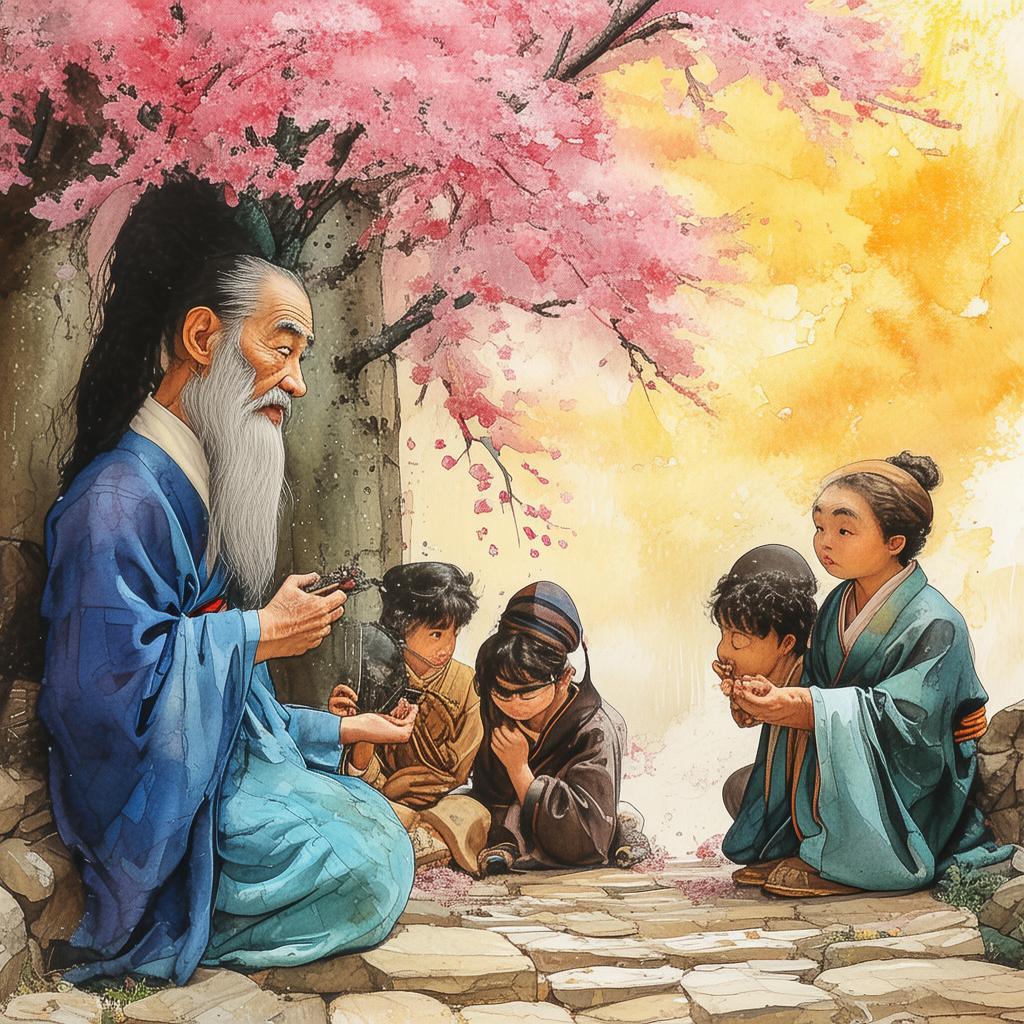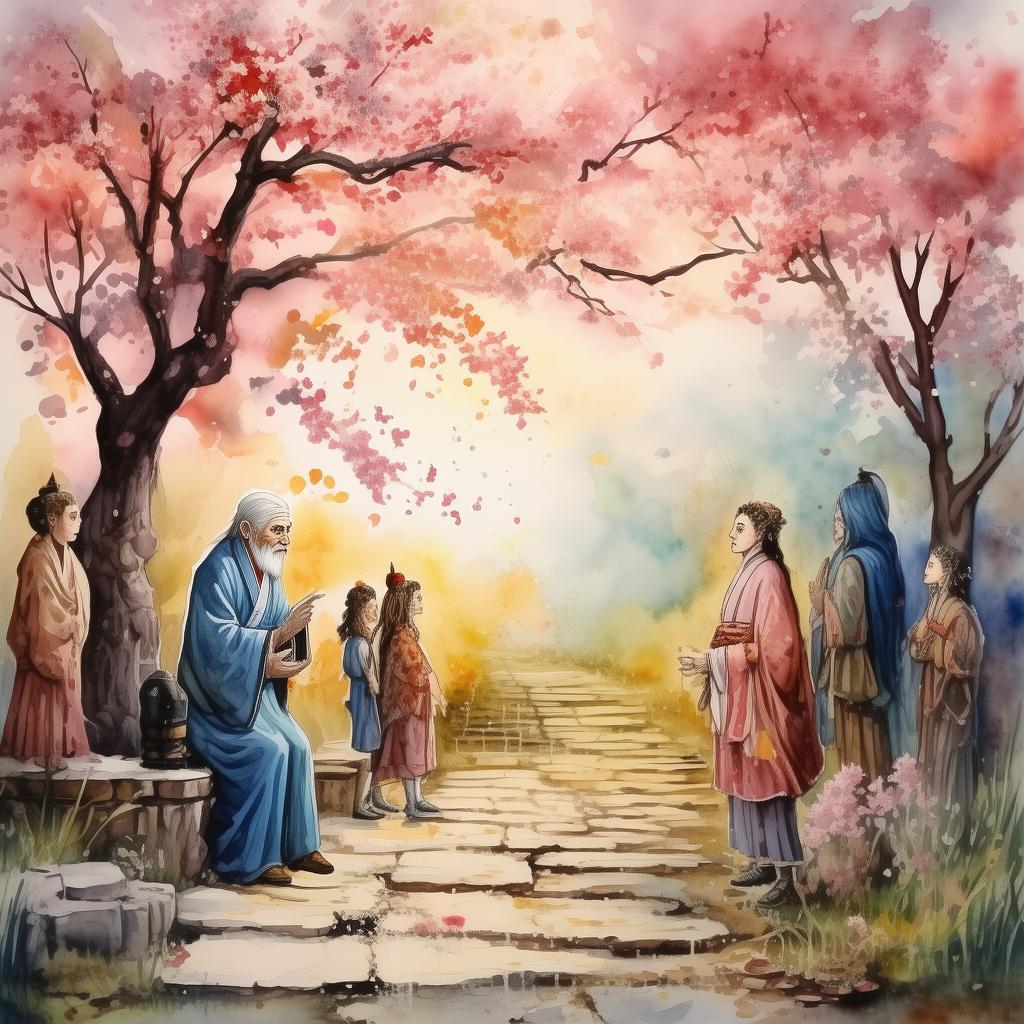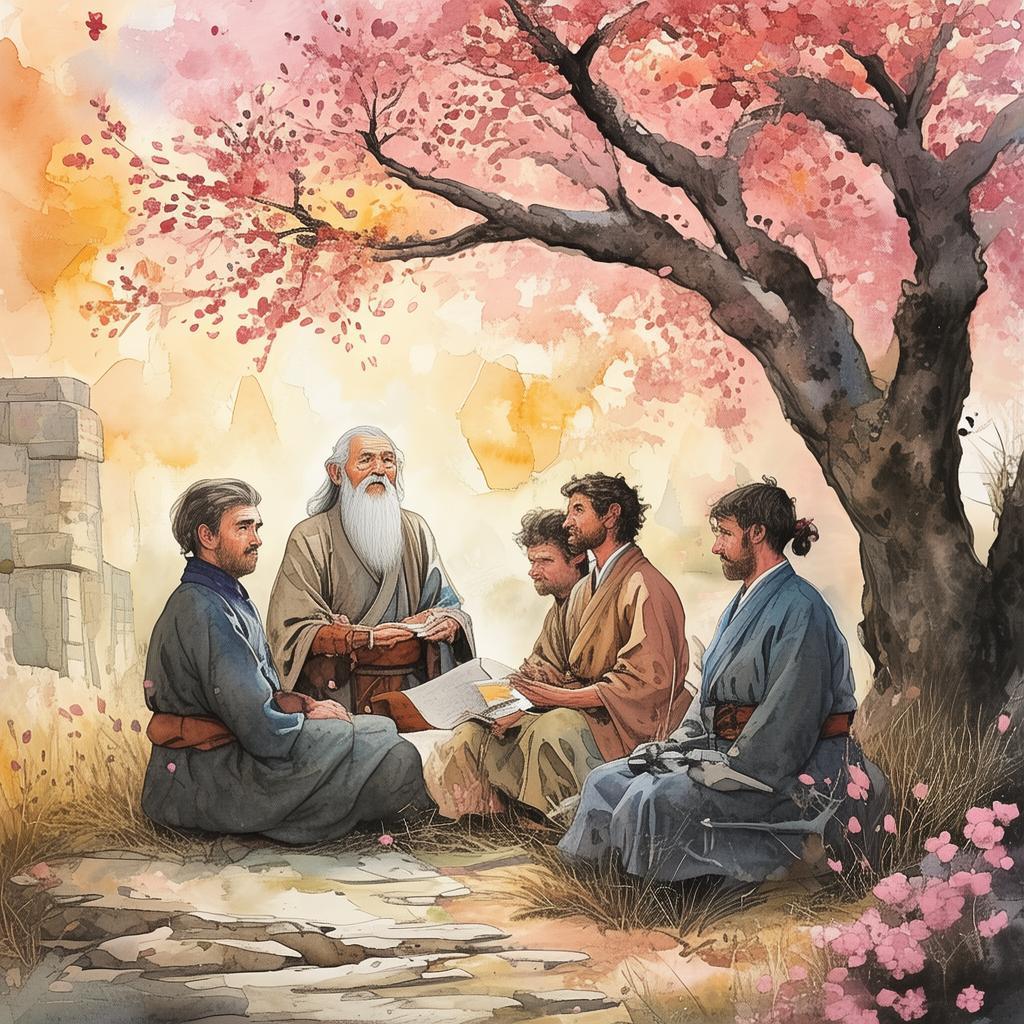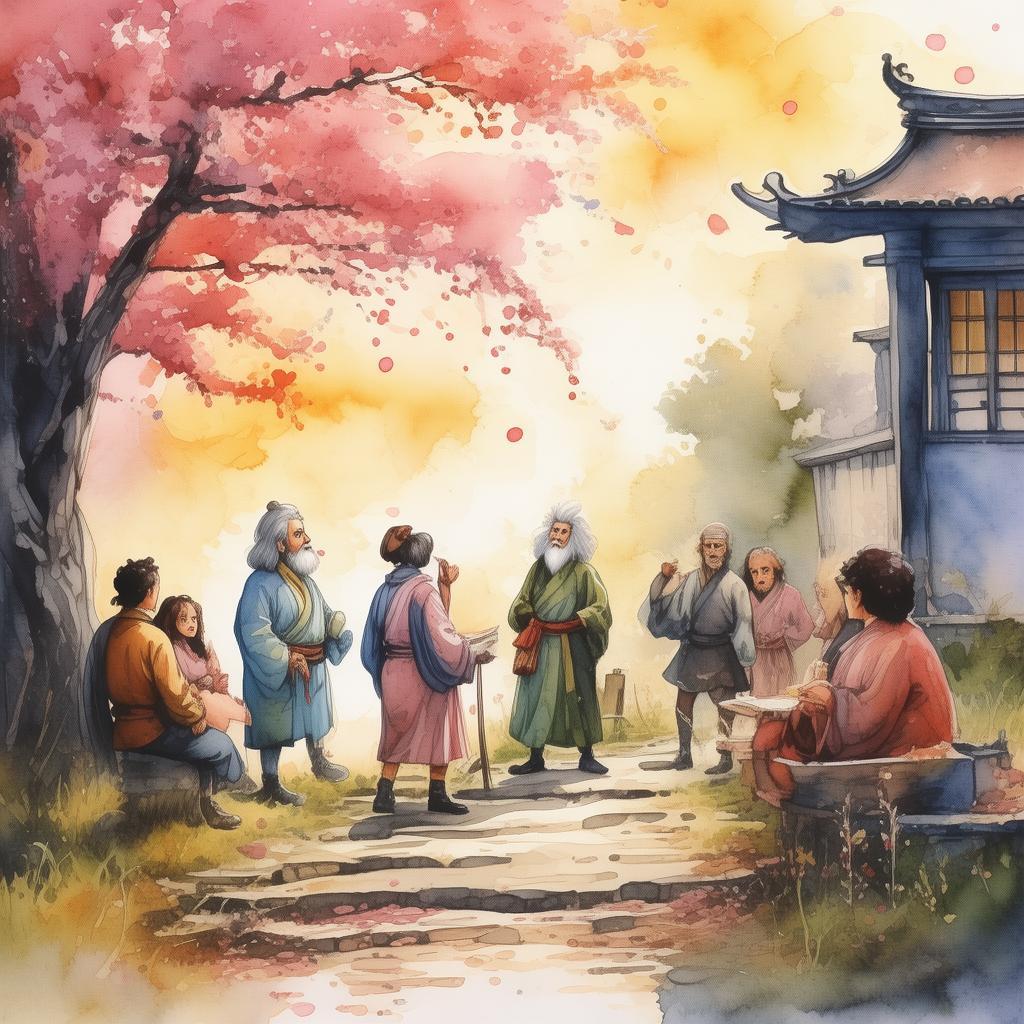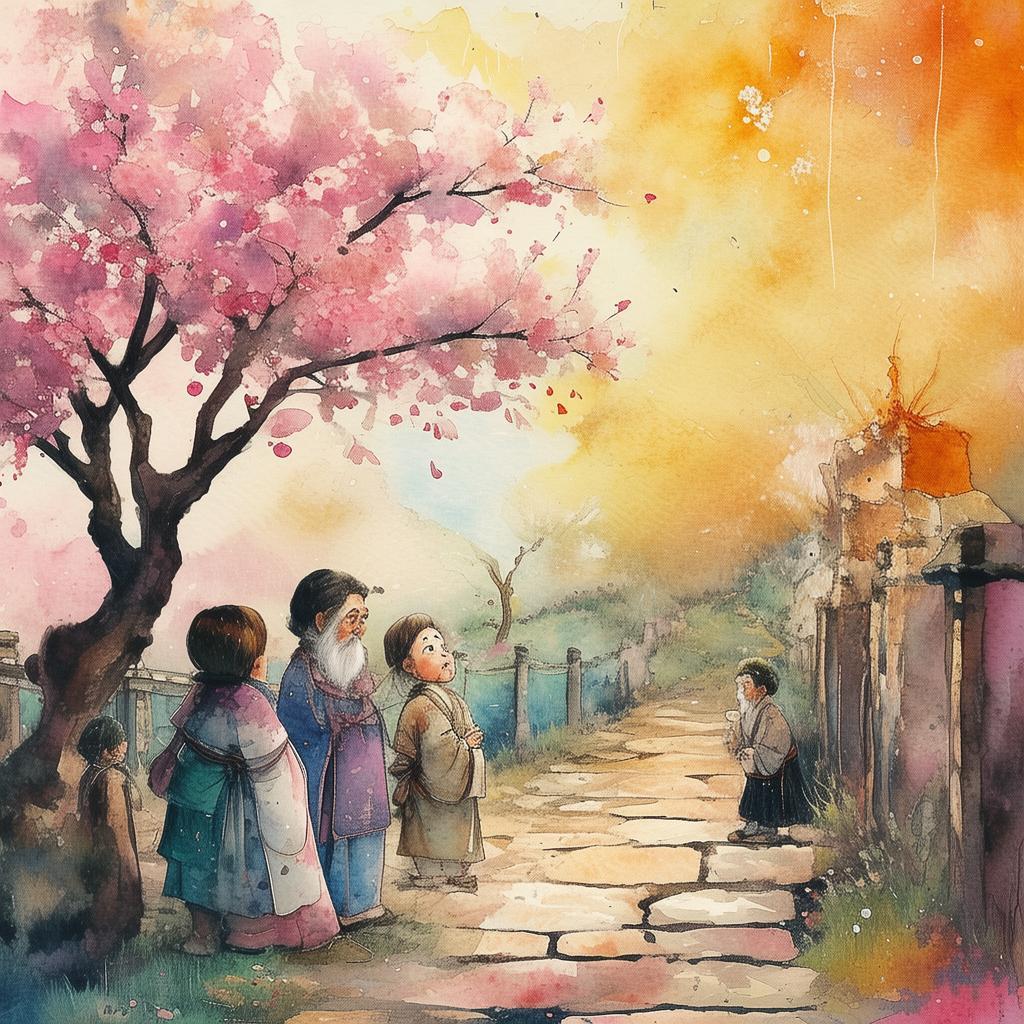Whispers of the Unseen: The Paradox of Perception
In the heart of the ancient city of Roughwood, where the trees whispered secrets and the wind carried tales of the unseen, there lived a young philosopher named Li. Li was known for his sharp mind and his insatiable curiosity, which often led him down paths less traveled. His latest quest was to uncover the truth behind the Roughwood Rebellion, a movement that had been shrouded in mystery since its inception.
The rebellion was said to be led by a figure known only as the Shadow, whose face was never seen and whose voice was never heard. Yet, the influence of the Shadow was palpable, as it seemed to permeate every corner of Roughwood, stirring unrest and discontent among the citizens.
Li's journey began in the bustling marketplace, where rumors and speculation were as common as the goods being sold. He approached an old woman selling herbs and asked her about the rebellion.
"Ah, young man," she said, her eyes twinkling with a knowing glint, "the rebellion is not what it seems. The Shadow is but a symbol, a mask worn by those who seek to change the world from the shadows."
Li was intrigued. "But who is the Shadow, and what is their true purpose?"
The old woman smiled cryptically. "The true purpose is known only to those who seek it. Look within, and you shall find the answer."
Li's next stop was the library, a place of knowledge and wisdom. He spent hours pouring over ancient texts, searching for any mention of the Shadow or the rebellion. It was there that he stumbled upon a passage that spoke of a paradox, a concept that had intrigued him since his youth.
The passage read: "The paradox is the unseen truth, the truth that lies beyond the senses. To perceive the paradox, one must look beyond the veil of perception."
Li realized that the key to understanding the rebellion lay in understanding the paradox of perception. He decided to test his theory by speaking with the rebels themselves.
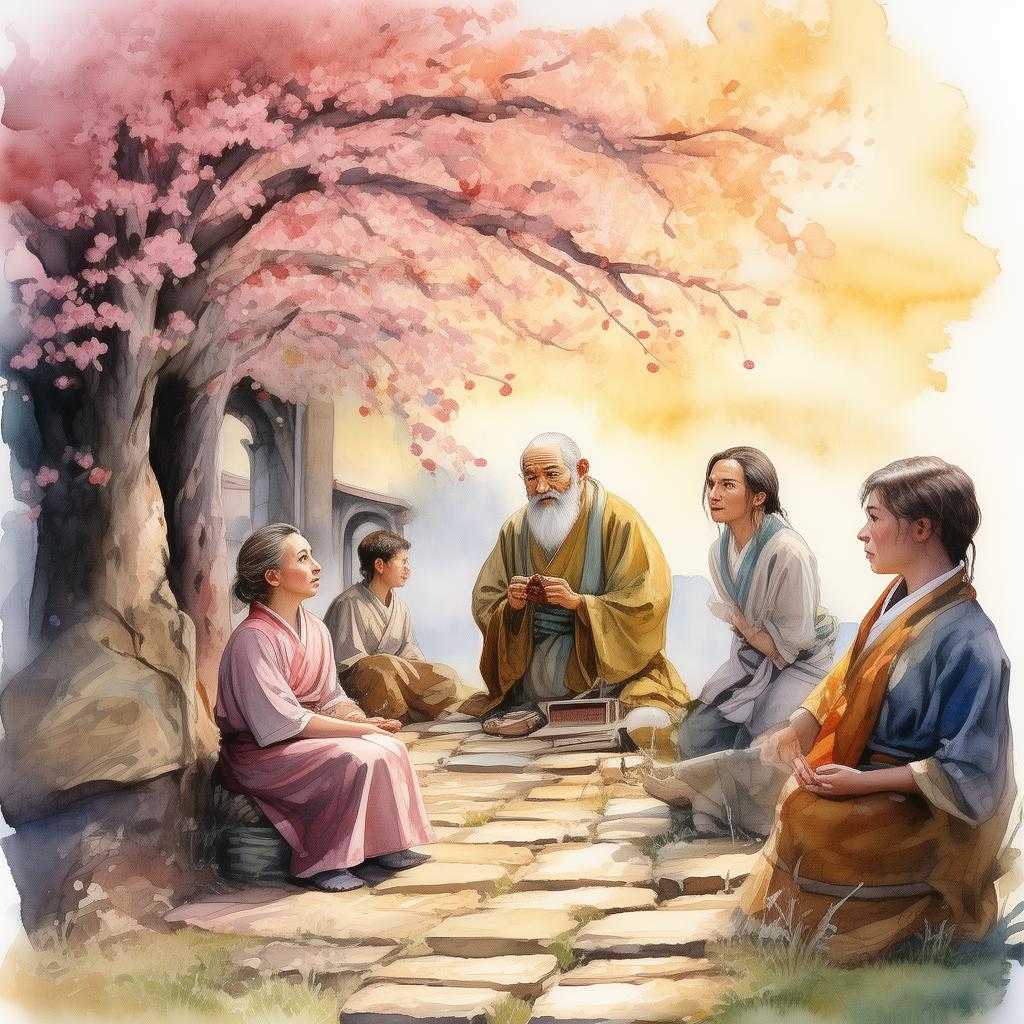
The rebels were a diverse group of people, each with their own reasons for joining the movement. Li approached them one by one, asking them about their motivations.
One rebel, a young woman named Mei, spoke of inequality and the need for change. "The rebellion is not about power or control," she said. "It's about giving a voice to the voiceless and fighting for a fairer society."
Another rebel, an elderly man named Chen, spoke of the environment and the need to protect it. "The rebellion is about preserving the beauty of our world for future generations," he said.
Li listened intently, but he knew that these were only surface-level reasons. He needed to delve deeper into the paradox of perception.
He returned to the old woman's stall and asked her if she could help him understand the paradox better. She nodded and handed him a small, ornate box. "This box holds the key to the paradox," she said. "Open it, and you shall see."
Li opened the box and found a mirror. In the reflection, he saw not only his own face but also the faces of the rebels he had spoken to. He realized that each face represented a different aspect of the paradox, a different truth that needed to be seen.
Li returned to the rebels and asked them to look into the mirror with him. As they did, they saw not only themselves but also the unseen truths that lay within them. The paradox of perception became clear.
The rebels, each with their own beliefs and motivations, were part of a larger truth. The rebellion was not about one person or one cause, but about the collective desire for change and understanding.
Li approached the Shadow, who had been watching from the shadows all along. "I have understood the paradox," he said. "The rebellion is not about power, but about perception. It is about seeing the truth that lies beyond the veil."
The Shadow nodded, a faint smile playing on his lips. "You have seen the unseen, Li. Now, go forth and spread the truth."
Li returned to the library and began to write, documenting his journey and the truths he had uncovered. His words spread like wildfire, and soon, the citizens of Roughwood began to see the world in a new light.
The Roughwood Rebellion, once a shadowy force, became a beacon of hope and change. And Li, the young philosopher, had played a pivotal role in revealing the paradox of perception to the world.
In the end, the true power of the rebellion was not in the actions of the Shadow, but in the collective understanding of the citizens. The paradox of perception had shown them that the unseen truths were not only real but also within their grasp.
✨ Original Statement ✨
All articles published on this website (including but not limited to text, images, videos, and other content) are original or authorized for reposting and are protected by relevant laws. Without the explicit written permission of this website, no individual or organization may copy, modify, repost, or use the content for commercial purposes.
If you need to quote or cooperate, please contact this site for authorization. We reserve the right to pursue legal responsibility for any unauthorized use.
Hereby declared.
